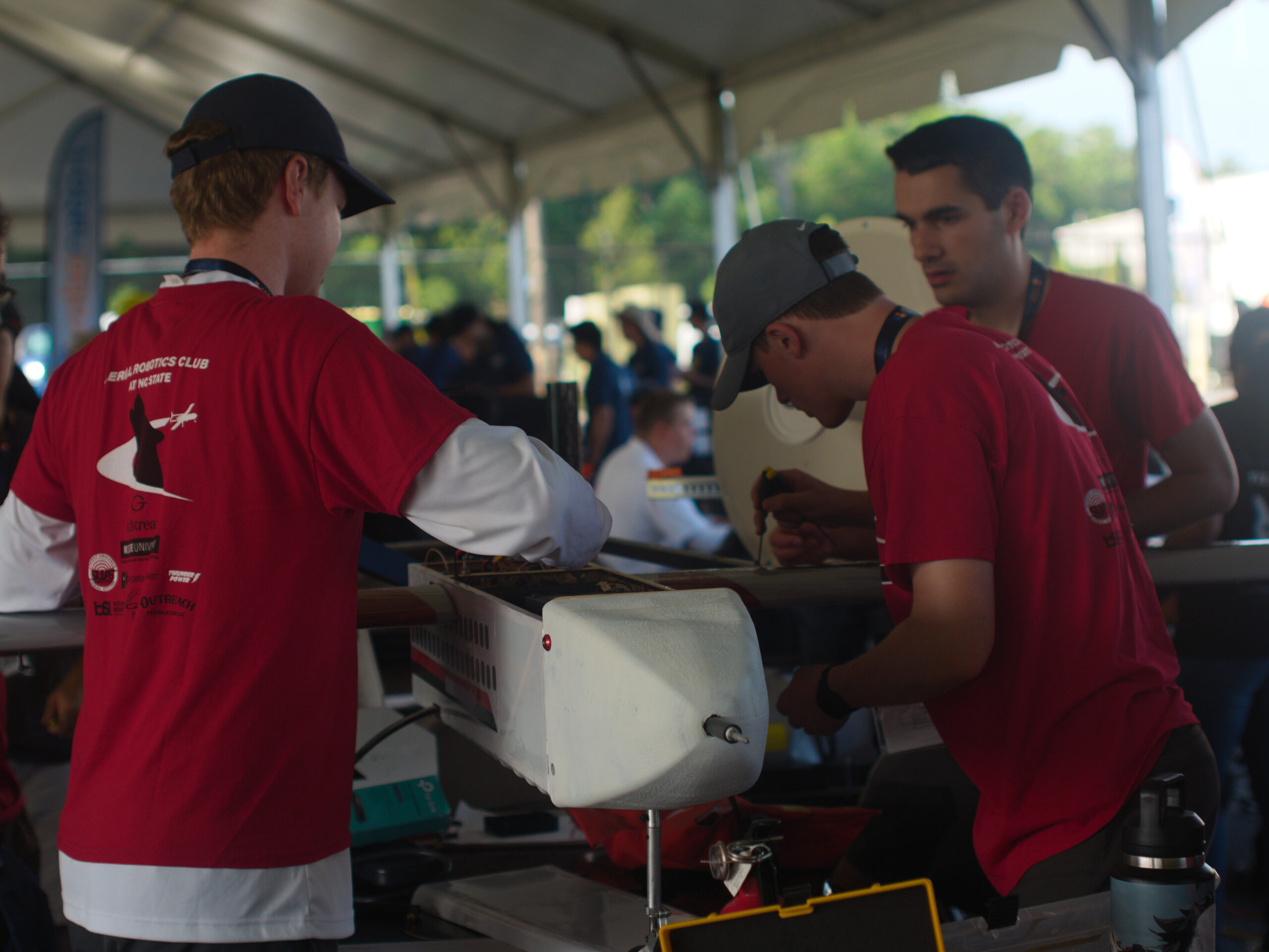Announcing the Winners of the Team Experience and Competition Awards
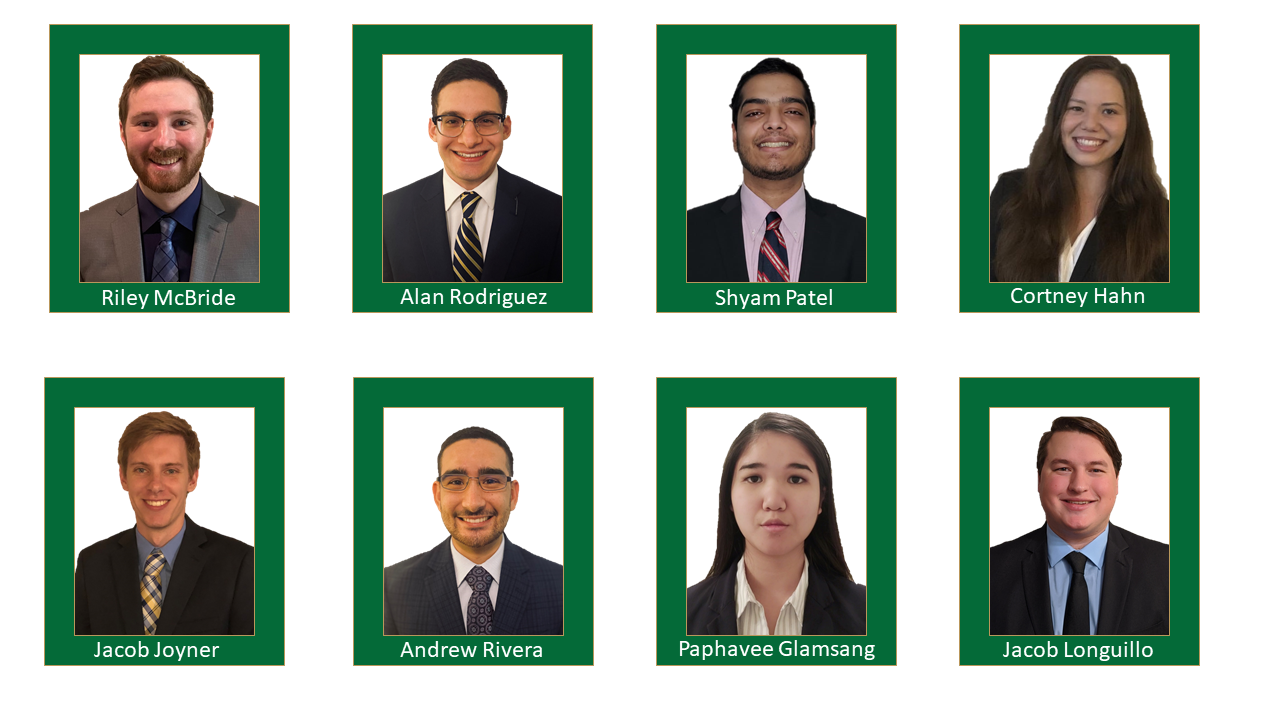
NC Space Grant is excited to announce the winners of this year’s Team Experience and Competition Awards, which help undergraduate and graduate teams participate in competitions either sponsored or sanctioned by NASA or other STEM-related organizations. Competitions are in the fields of engineering, science, technology and/or mathematics (STEM), and complement the academic studies of the team members. These opportunities help students develop the skills and knowledge base, as well as build strong teamwork capabilities, necessary to succeed in STEM careers in the future. Competitions must provide students with hands-on experiential learning opportunities related to one or more of NASA’s Mission Directorates: aeronautics research; human exploration and operations; science; and space technology.
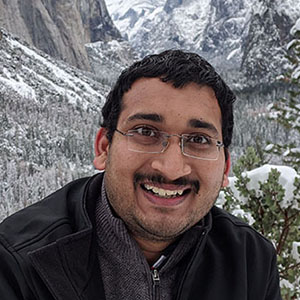
Newcomer, Duke Hyperloop team, is planning on competing in the SpaceX hyperloop competition in 2021. This competition challenges teams to create, design and build a subscale Hyperloop pod, which will travel nearly a mile through a low-pressure tube built by SpaceX in California. The winning criterion is maximum speed. Evan LaCombe of the Duke Hyperloop team says, “Hyperloop is the future, and our founding members want to contribute to the development of this technology. We really couldn’t pass on this opportunity.”
Shreyas Hegde, another member of the Hyperloop team and a 2019-20 NC Space Grant Graduate Research Fellow, says they started this project in February when no one was on campus due to the impact of COVID-19. Hegde notes the two biggest obstacles the team faced were funding and logistical aspects, such as space to work on campus. The funding provided by the NC Space Grant, along with generous material donations made by other organizations, will help Duke Hyperloop complete the project.
Earl Dowell, the faculty advisor of Duke Hyperloop, says this experience is rewarding beyond academics.
“I think learning to work with other people and meeting deadlines and fulfilling promises is a valuable lesson,” Dowell explained.
The University of North Carolina at Asheville’s team, another newcomer to NC Space Grant, will be competing in NASA’s 12th Robotic Mining Competition (RMC): Lunabotics 2021. The UNC-Asheville team is working in collaboration with a team at North Carolina State University on this opportunity. This competition challenges students to design, build and operate a lunar excavator prototype.
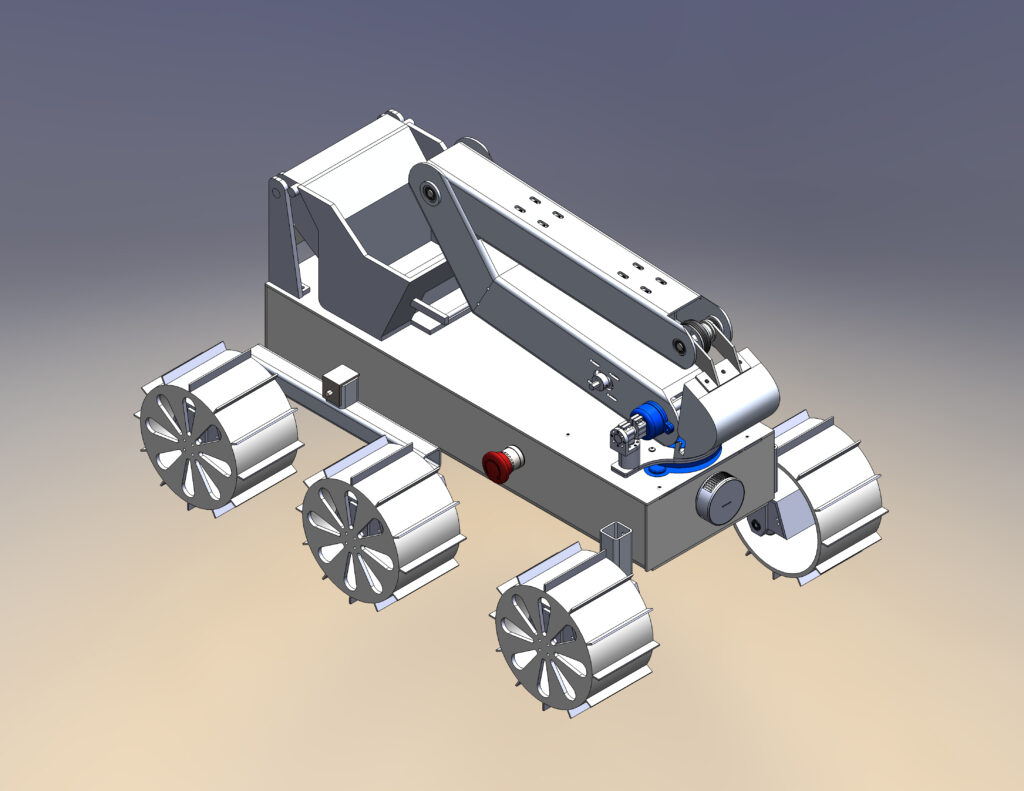
The upcoming competition challenges teams to build rovers that are smaller than previous years to explore cost efficient research on the moon. The University of North Carolina at Charlotte’s robotic mining team will also be participating in this competition, with ten multidisciplinary engineering students.
UNC-Asheville RMC team’s faculty advisor, David Ramsey, notes that, last year, students actually completed two-thirds of this project before campus was closed. What shape the 2020-21 RMC competition will take remains an unknown; however, the team is still pushing forward and meeting deadlines. Ramsey spoke on the importance of the RMC competition to his students.
“Much of this goes well beyond what they have learned in coursework. It is very much a real engineering project. It is very exciting and they really want to compete in May. It is a chance to flex your muscles as a fledgling engineer and show, ‘this is what I can do’,” Ramsey says.
University of North Carolina at Charlotte is also competing in the SoutheastCon 2021 Hardware Competition which is taking on a unique experience of using autonomous robots to navigate a maze in a Pac Man-style competition.
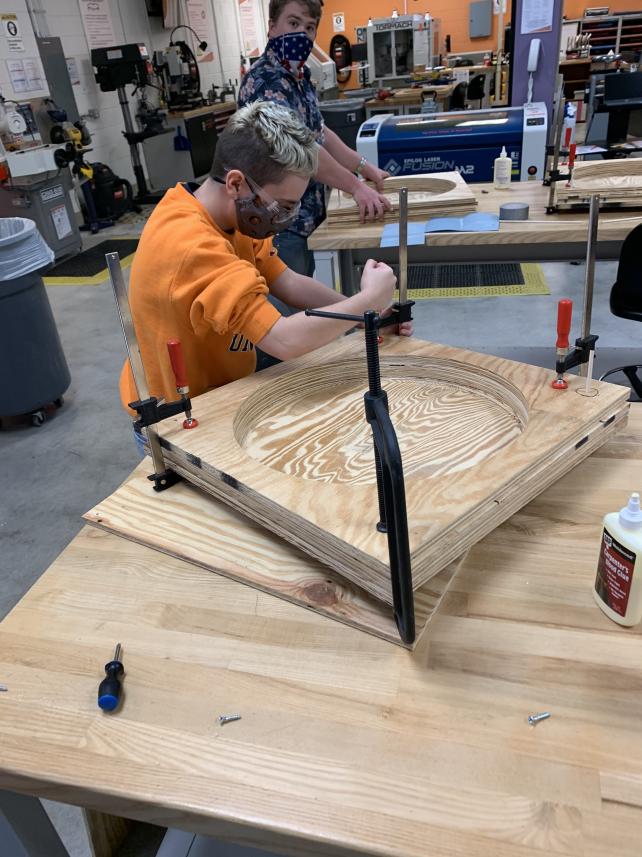
UNC-Charlotte’s and NC State’s high-powered rocketry teams are both competing in the 2020-2021 NASA Student Launch Competition. Students take on the challenge of designing and building payloads or vehicle components that support space launch systems. They will then fly their designs on launch day. In previous years, UNC-Charlotte’s 49er Rocketry Team has won second place in the best overall team category, first place for the project review award, second place in payload design, first place in rover-payload design, second place in safety documentation and second place in rocket appearance.
An NC State team is also competing in the American Institute of Aeronautics and Astronautics Design Build Fly 2020-2021 competition, in which they will design, build and test an unmanned aerial vehicle with a towed sensor. Still another team will compete in the Ninth Annual Association for Unmanned Vehicle Systems Student Unmanned Aerial Systems Competition. According to the American Institute of Aeronautics and Astronautics website, students will design and demonstrate a UAS capable of autonomous flight and navigation, remote sensing via onboard payload sensors, and execution of a specific set of tasks.
The Lenoir-Rhyne University team is competing in the 2020-2021 Spaceport America Cup, sponsored by the Experimental Sounding Rocket Association. This competition challenges teams to design, build and fly rockets with a payload size of 8.8 pounds. Rockets are typically 8-20 feet long and are expected to reach a target altitude of 10,000 or 30,000 feet.
Lastly, the Campbell rover team returns to compete in the NASA Human Exploration Rover Challenge (HERC). The goal of the HERC is to design, build and test a rover that can carry two team members and complete tasks on a specially constructed challenge course. Each rover must navigate at least half a mile of the course.
Congratulations to all the awarded teams!
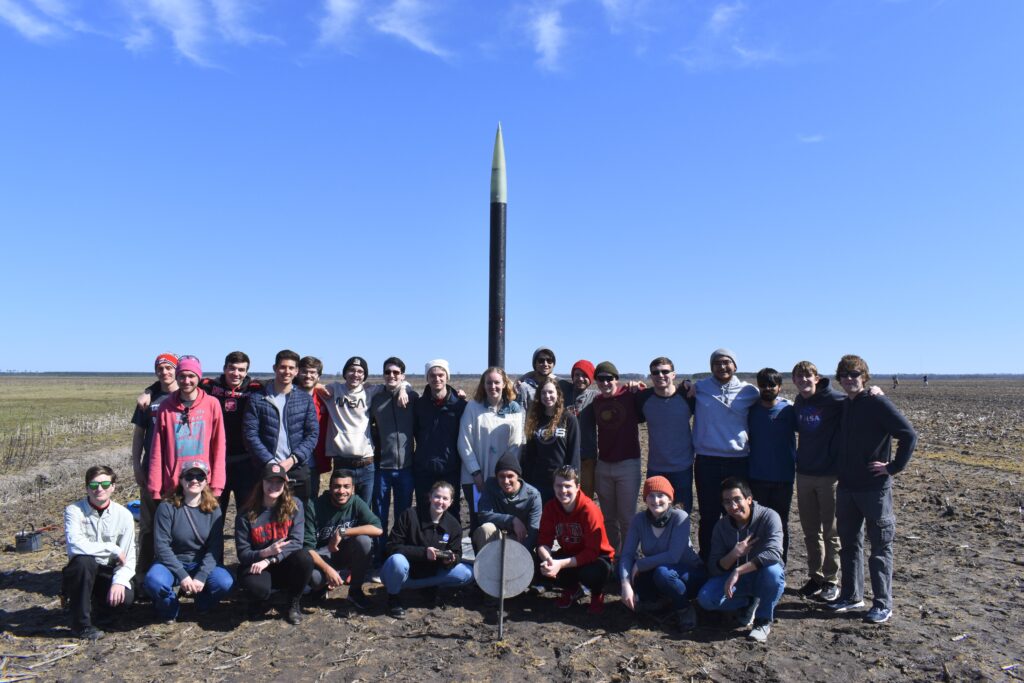
Campbell University, NASA Human Exploration Rover Challenge (HERC), faculty advisor: Lee Rynearson, Ph.D.
Duke University, SpaceX Hyperloop Competition 2021, faculty advisor: Earl Dowell, Ph.D.
Lenoir-Rhyne University, Spaceport America Cup, faculty advisor: Doug Knight, Ph.D.
North Carolina State University, American Institute of Aeronautics and Astronautics (AIAA) Design/Build/Fly Challenge, faculty advisor: Jack Edwards, Ph.D.
North Carolina State University, AUVSI Student UAS Competition and 2020-2021 NASA Student Launch Competition, faculty advisor: Felix Ewere, Ph.D.
University of North Carolina-Asheville, NASA Robotic Mining Competition: Lunabotics 2021 in collaboration with NC State University, faculty advisor: David Ramsey, Ph.D.
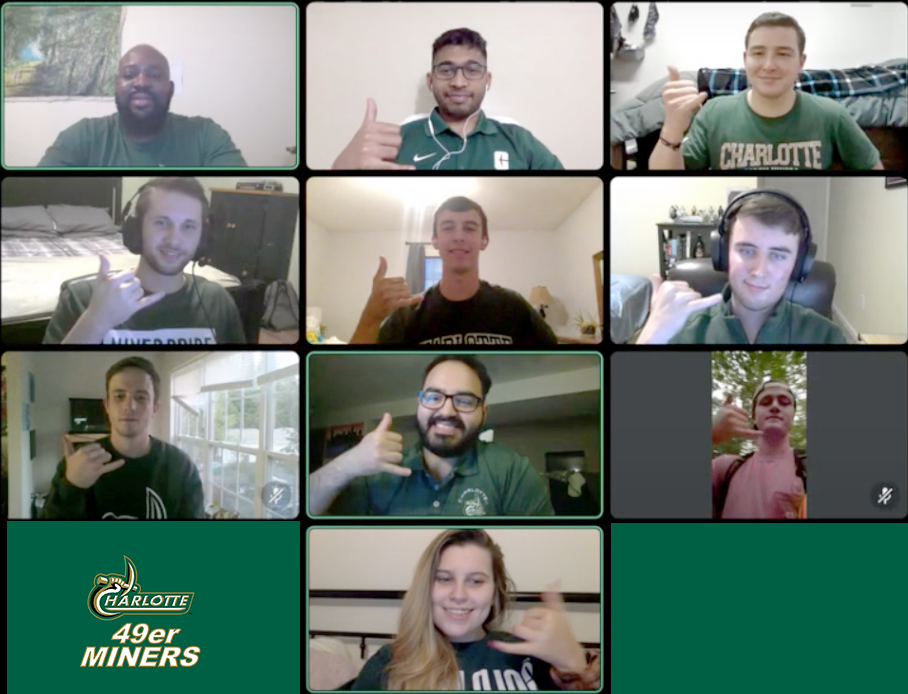
University of North Carolina at Charlotte, Institute of Electrical and Electronics Engineers (IEEE) SoutheastCon 2021 Hardware Competition, faculty advisor: Jim Conrad, Ph.D.
University of North Carolina at Charlotte, NASA Robotic Mining Competition: Lunabotics 2021, faculty advisor: Aiden Brown, Ph.D.
University of North Carolina at Charlotte, 2020-2021 NASA Student Launch Competition, faculty advisor: Jerry Dahlberg, Ph.D.
Top photo: The UNC-Charlotte 49er Rocketry team will be competing in the NASA Student Launch competition.
- Categories:

